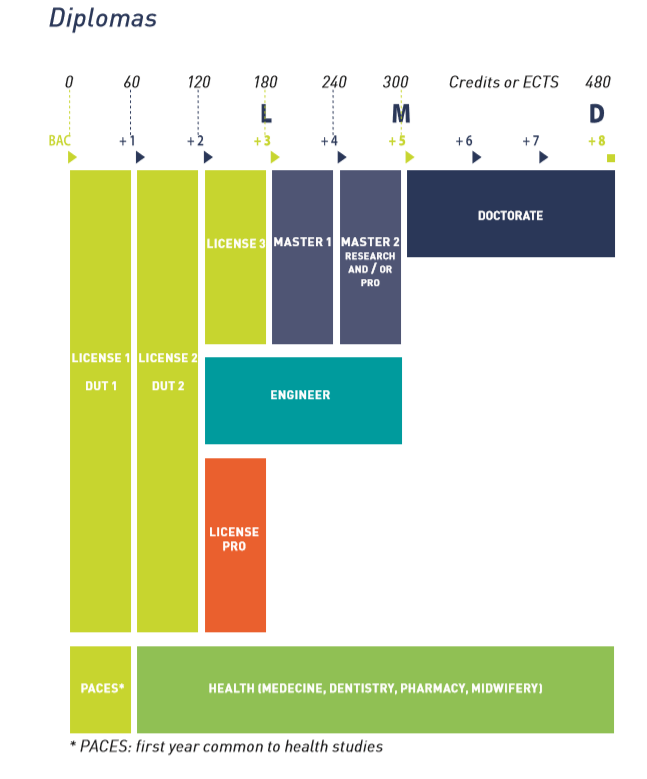Plan of studies
Academic calendar
The academic year begins in September and ends in May or June, depending on the program. The year is punctuated by vacations, including two weeks at the end of the year (Christmas and New Year's).
The two semesters are divided by a short break following final examinations at the end of the first semester.The summer vacation lasts more than two months and always includes the months of July and August.
LMD system

As part of the harmonization of European higher education, the university study programs are organized around three degrees :
- Licence (Undergraduate degree)
- Master (M)
- Doctorate (D)
The advantages of this system include :
- recognition and equivalence Europe-wide
- student mobility
- better recognition of the degrees on the labour market
- More information about diplomas
Organization of studies
Semester system- The licence is divided into 6 semesters
- The master is organized in 4 semesters
Credits can be accumulated and transferred
Each semester is assigned 30 credits or ECTS (European Credit Transfer System), common to many European countries :- license, 6 semesters validated = 180 credits
- master, 4 semesters validated = 300 credits
Course Unit system (Unités d'Enseignement - UE)
The system consists of course units. Each UE has a value defined in ECTS credits and corresponds to the number of hours of study (lectures, tutorials, practical work, personal projects) that the student must complete to obtain a UE. A full year represents 60 credits or 30 credits per semester.No predetermined set of equivalences between French and foreign degrees is officially recognized in France. Each institution is free to set its own admission criteria and make its own admission decisions based on each applicant's background and the demands of the program to which the applicant seeks admission.
That freedom allows French institutions to compose well-qualified and well-balanced student cohorts, while also protecting the integrity and the reputation of the education offered.
Classes
- Large lecture classes
- Seminars, tutorials and labs
In seminars, tutorials and labs, small groups of students meet to apply or explore in greater detail the material covered in lectures. Attendance is mandatory, whereas attendance at the lectures is not.
In career-oriented programs offered in the universities, internships and practical training are required in addition to the small-group seminars.